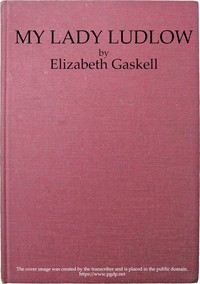| Summary |
"My Lady Ludlow" by Elizabeth Cleghorn Gaskell is a novel written during the mid-19th century. The narrative is framed through the reflections of an older woman as she recounts her experiences of growing up and her connection with Lady Ludlow, a noblewoman who takes a special interest in the protagonist's family during a time of hardship. The story explores themes of social class, duty, and the evolving nature of society, particularly in relation to the changing roles of women and the lower classes. At the start of the novel, we are introduced to the narrator, who reminisces about her childhood and the impact of social changes on her life. Her family, led by her mother and deceased father, faces economic difficulties following the death of their patriarch. The narrative develops with a letter from Lady Ludlow, offering to help the narrator's family, which sets the stage for her move to Hanbury Court. The opening chapters establish the characters, including the strong and traditional Lady Ludlow, who insists on maintaining the social order of her time while grappling with the emerging ideas of education and class mobility brought forward by figures like Mr. Gray, the new clergyman. The initial chapters lay the foundation for the conflicts between traditional social expectations and the evolving thoughts on progress, duty, and compassion. (This is an automatically generated summary.)
|

